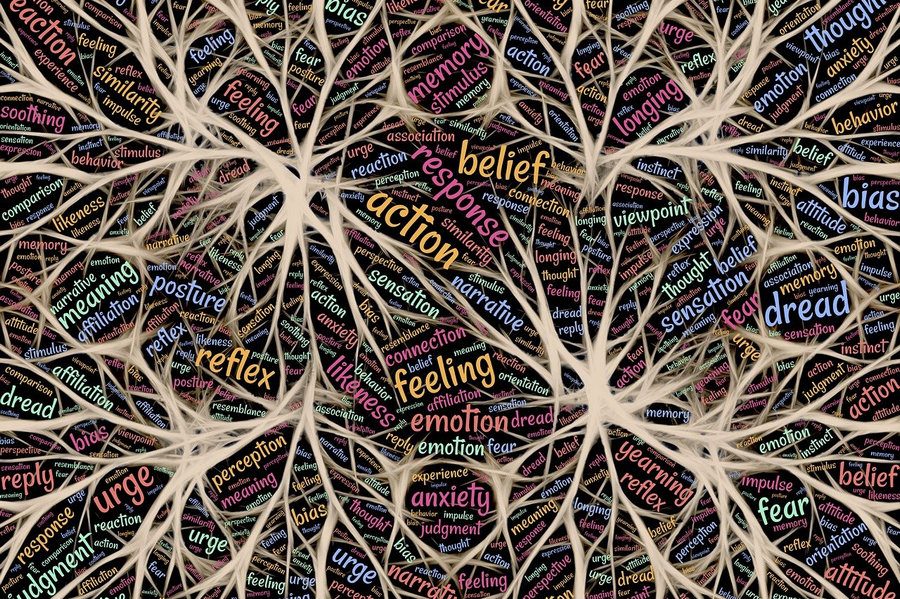There are many Mister Rogers quotes that can teach us about dementia, and how to deal with it.
There are several books written by Fred Rogers, famous for his children’s show Mister Rogers’ Neighborhood. After Rogers passed away in 2003, a quote from him was making the rounds:
“Often out of periods of losing come the greatest strivings toward a new winning streak.”
This is a comforting thought for those caring for, or who have lost a loved one to dementia.
Dementia leads to an undeniable loss of the person they once were. The disease changes not only their physical appearance but their personality as well. They may seem more childlike or suddenly shy or withdrawn when they used to be outgoing and social.
But perhaps this quote can provide some solace to those grieving the person they once knew. With loss comes an opportunity for new growth and change, even if it’s not exactly what we expected or hoped.
Fred Rogers experienced this firsthand as he cared for his mother after doctors diagnosed her with dementia. He often visited her in the memory care facility where she lived, and every time he came, he’d bring her a gift, hold her hand, and try to bring some sunshine into her life.

9 More Mister Rogers Quotes That Teach Us About Dementia
"When we can talk about our feelings, they become less overwhelming, less upsetting, and less scary."
With dementia, people often feel a lot of different emotions. People with dementia may feel that they are no longer themselves or that their family and friends don’t want to spend time with them anymore.
They may feel frustrated by the changes in their lives and forgetful about what they’re doing and why. They might also experience sadness, anger, or even guilt because they cannot do things they used to do before someone diagnosed them.
It is important to know what they feel and why they feel that way. We need to talk about our feelings to be less overwhelming, less upsetting, and less scary.
"Talking about our feelings can help us cope with them."
We’re not very good at communicating our feelings. It’s often easier to push them aside or ignore them entirely than to address the underlying issues causing us distress. And while communication is an essential part of empathy, we rarely think of it in that way.
We might tell someone how sad we are about their situation, but we might be reluctant to ask what they need out of that interaction. For those struggling with dementia, though, communicating one’s feelings can be even more difficult. But the benefits of talking through our emotions are many. That applies to people with dementia just as much as anyone else.
In an interview with PBS in 2000, Mister Rogers spoke about how he’d recently visited a friend who had Alzheimer’s disease. The condition had seriously affected his friend’s ability to speak coherently. Fortunately, thanks to Mr. Rogers’ helpful reminder to use simple language and listen attentively, they could have a meaningful conversation about what his friend was going through.
It wasn’t just that Mister Rogers practiced what he preached by being there for his friend with dementia; he made sure that families dealing with dementia knew there was no need for shame or embarrassment about the situation. However, its effects can be devastatingly heartbreaking for those who have it and those who care for them.
"Sometimes explanations, no matter how reasonable, just don't help."
Doctors and caregivers take you through many explanations of what is happening to your loved one and what you can do to help. The explanations are usually logical and make sense. But they never change the fact that someone you love very much is slowly slipping away from you.
As much as you would like an explanation that can erase the pain of watching a loved one lose their memory and ability to function independently, there may not be one. The best you can do is grieve for the person they were and find new ways to form a meaningful relationship with the person they are now.
Rather than focusing on what your loved one has lost, try searching for ways you can still connect with them despite their illness. Consider what activities they enjoyed before they became ill or what topics brought out their personality and humor. Look for ways you can still enjoy each other’s company.
"Feeling good about ourselves is essential in our ability to love others."
Feeling secure and calm is necessary for loving others, including those with dementia. This is especially important when communicating with someone who has dementia because feeling rushed or pressured can cause them to disengage from conversation or become agitated.
In these moments, it’s helpful to take a deep breath and remind ourselves that this person deserves the same level of respect as anyone else.
When you feel good about yourself, it has a positive effect on all aspects of your life:
- your relationships with others
- the way you approach your work or volunteer duties
- how you take care of yourself
- how you handle stress or difficult situations, such as those that can arise when caring for someone with dementia.
"The world needs a sense of worth, and it will achieve it only by its people feeling that they are worthwhile."
This is a message that we need to hear every day, particularly in how we treat those with Alzheimer’s and other dementia. We must understand how this disease works—we can’t scoff at someone who seems confused or upset or get impatient with them if they don’t seem to make sense. It’s not their fault—and the fact is, they need our patience and understanding more than ever before.
Our society places a high value on productivity and achievement. This can sometimes cause us to view people who can no longer achieve these things as “less than.”
When you come at your loved ones from a place of compassion and understanding, you’re helping them feel like they have a purpose in life instead of burdening your family.

"There are three ways to ultimate success: The first way is to be kind. The second way is to be kind. The third way is to be kind."
This quote may seem obvious, but it can offer us a lot of insight into the lives of people with dementia and the people who care for them. Those of us living with an older adult who has dementia know that understanding and having compassion for them is sometimes one of the hardest parts of our day.
Everyone wants to feel respected and important. And those who have dementia often have trouble expressing themselves clearly or have difficulty understanding what’s going on around them. That makes it easy for them to feel frustrated, disrespected, or unimportant.
Caregivers and family members can play a huge role in helping loved ones with dementia feel respected by being as kind as possible in their interactions with them and others around them when they’re together in public places.
We want to be patient and loving, but it can feel like we’ve run out of patience and love. In those moments, we remember that when dealing with dementia, kindness is always the right answer.
"Forgiveness is a strange thing. It can sometimes be easier to forgive our enemies than our friends. It can be hardest of all to forgive people we love. Like all of life's important coping skills, the ability to forgive and the capacity to let go of resentments most likely take root very early in our lives."
When we’re hurting, it’s easy to want to blame someone for it—especially if an intentional act like betrayal or abandonment caused the pain. But after a while, holding on to our resentment and anger will only deepen our wounds.
Mister Rogers explained that a person might come into this world with a predisposition to being forgiving or unforgiving. They might develop these tendencies as they grow up depending on their experiences with their family and other significant relationships.
This means that when you’re dealing with forgiveness, you’re also dealing with your history and everything that has made you who you are today, which can be scary territory for some people.
People with dementia and their caregivers need to remember that forgiveness is still an option, even though patience may run low for both parties. Holding a grudge can only bring about more stress and resentment; letting go and forgiving gives everyone involved a chance to move forward.
"Everyone longs to be loved. And the greatest thing we can do is to let people know they are loved and capable of loving."
This applies not only to those with dementia but also to those who care for them. Sometimes we overlook the positive emotions—love, kindness, compassion—and focus on the challenges and frustrations of caring for a loved one with dementia.
We all want to be loved, and it’s up to us to be loving people ourselves. We should all try to remember that as we get older, especially if we’re caring for someone with dementia.
We want them to feel loved, and they can love others too. This can be hard sometimes when they’re not acting like themselves or struggling with their memory loss or illness. But it’s important to remember that there’s still a person who needs love and attention, just like everyone else.
Letting them know you care about them even when they can’t remember who you are will make them feel special and will help boost their self-esteem.
"When I was a boy, and I would see scary things in the news, my mother would say, 'Look for the helpers. You will always find people who are helping.'"
Dementia affects around 55 million people worldwide and about 5.8 million Americans alone. That’s many caregivers and loved ones who need help, support, and guidance in caring for their loved ones.
It’s important to remember that there is an entire community of people around you who understand what you’re going through and that there are many resources available to you as you go through this journey.
People with Alzheimer’s disease and their families face one of the most frightening, challenging struggles anyone can imagine. But as Fred Rogers said, there are always helpers around who want to step in and make a difference. There is a group out there who wants to be your helper.
If you or someone you love is experiencing problems with dementia, let us introduce you to our team of experienced caregivers at Applewood Our House. We want to help you feel safe and informed about what’s going on in your life right now so that you can focus on living it with as much positivity as possible.
Contact Applewood Our House today for more information.
If you would like to read some books by Mister Rogers, Click Here for more information.






